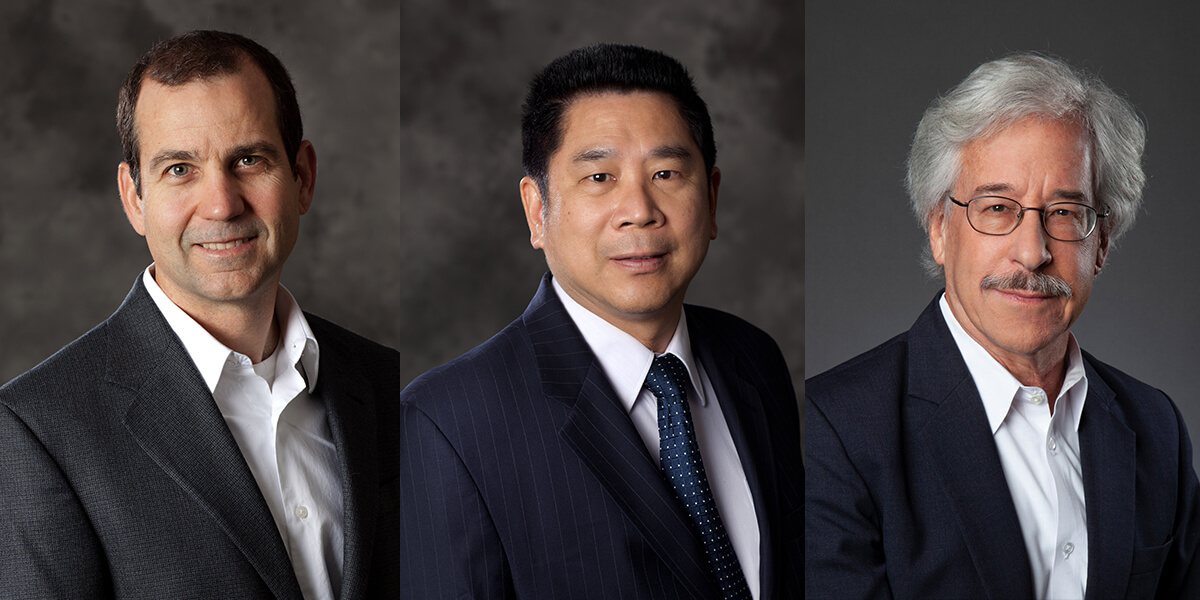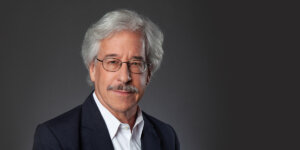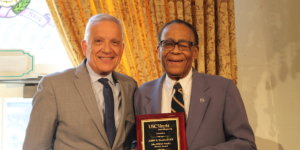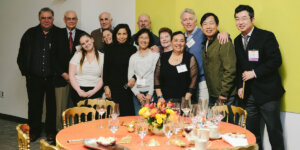
From left: USC Viterbi Professors Keith Chugg, C.-C. Jay Kuo, and Gerald Loeb (PHOTO CREDIT: USC Viterbi)
Each year, the National Academy of Inventors awards 175 academic inventors to the distinction of NAI Fellow. This year’s class includes three professors at the USC Viterbi School of Engineering: Gerald Loeb, professor of biomedical engineering and neurology; Keith Chugg, professor of electrical and computer engineering; and Jay Kuo, dean’s professor and distinguished professor of electrical and computer engineering.
The National Academy of Inventors is an organization dedicated to recognizing, encouraging and enhancing the visibility of academic technology and innovation. NAI highlights inventors who either create or facilitate outstanding inventions that have impacted society and being named an NAI Fellow is the highest professional distinction awarded to academic inventors.
Keith Chugg
Chugg’s interdisciplinary research uses theory, hardware architecture and design, software control and system integration. His research focus is in signal design, signal processing, detection, estimation and machine learning. He also works on architecture for digital hardware implementation of advanced algorithms. The goal of Chugg’s work is to simplify and automate neural architecture search.
Chugg is also the co-founder of TrellisWare Technologies where he holds the title of chief scientist. He has served as associate editor for IEEE Transaction on Communications and Program and co-chair for the Communication Theory Symposium at Globecom 2002. Chugg, who received his M.S. and Ph.D. in electrical engineering from USC Viterbi, has been a part of the USC faculty since 1996.
Jay Kuo
Kuo is an internationally recognized leader in the fields of multimedia compression and communication, multimedia content analysis and computer vision. His work in image and video coding led to the proposal of the multi-threshold wavelet codec (MTWC), and he is a pioneer researcher in applying wavelets to image processing. Kuo’s research in multimedia content and rights management are also notable due to his contributions to audio and environmental sound analysis.
One of the most accomplished researchers and advisors at USC, Kuo has graduated 156 Ph.D. students through his Multimedia Communications Lab, making him the most prolific Ph.D. advisor in the Mathematics Genealogy Project. In addition to his new NAI fellow appointment, Kuo is also a fellow of IEEE, AAAS and SPIE.
Gerald Loeb
Professor of biomedical engineering, pharmacy and neurology at USC, Loeb is a pioneer in the field of neural prosthetics and one of the original developers of the cochlear implant, now widely used to treat hearing loss. Loeb moved to USC Viterbi in 1999, where he founded the Medical Device Development Facility. His research group developed BIONs – bionic neurons that are small enough to be injected into paralyzed muscles, where they receive power and send and receive data by radio links with an external controller. Loeb’s group also developed the BioTac, a biomimetic tactile sensor and founded SynTouch Inc, designated a Technology Pioneer by the World Economic Forum.
Loeb’s research focuses on the interfaces between electronic devices and the nervous system that are used to replace sensory and motor functions and correct dysfunctions in people with neurological problems. In previous work, Loeb developed the first tissue culture electrode array and the insulation technology for most commercial microelectrodes. He is an inventor on multiple patents used in spinal cord stimulators and biochips for identifying pets. He has published over 400 peer-reviewed articles, a book on electromyography and holds 74 U.S. patents.
Published on December 8th, 2020
Last updated on July 20th, 2021












